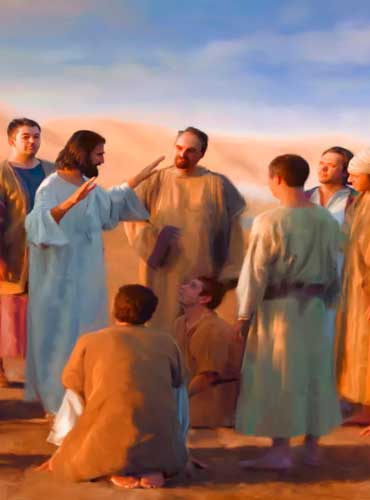Wednesday of the First Week of Lent – Lk 11:29-32
Today’s readings give us an insight into God’s mercy and justice. Jonah, as we might recall, was sent by God to preach repentance to the city of Nineveh. Nineveh wasn’t just a very large city; it was the heart and capital of the Assyrian empire, Israel’s ancient enemy who “brought the Northern Kingdom of Israel to an end and devastated Jerusalem in 701 B.C.”[1] Yet, God goes to great lengths to get Jonah there and preaching: it takes a storm, three days in a fish belly, and being spat out on shore to convince him, but eventually he goes about his mission, and is the instrument God uses to work the city’s conversion.
All this shows us how God earnestly desire the salvation of everyone, even the worst enemies of His chosen people, and how He, in His providence, arranges for them to hear the message of salvation. Saint Thomas Aquinas says that God’s mercy is the greatest manifestation of His omnipotence: “God’s omnipotence is particularly shown in sparing and having mercy, because in this is it made manifest that God has supreme power, that He freely forgives sins.”[2]
Yet, it would seem that a different fate awaited those who heard Jesus in today’s Gospel: “At the judgment the men of Nineveh will arise with this generation and condemn it, because at the preaching of Jonah they repented, and there is something greater than Jonah here.” The chosen people refuse to believe in Jesus, despite centuries of God’s mercy and even miracles shown to them. Even more, centuries of experience had shown the Jews that it was they who wandered from the paths of God; they needed to turn back to Him, and, although this Gospel takes place right after Jesus expels a demon, the people refuse to believe in Him and in His power to save. In her diary, Saint Faustina offers some words from Jesus that explain these two responses: “I cannot punish even the most hardened sinner,” Christ says, “if he appeals to My Mercy. He is immediately granted pardon through My incomprehensible and unfathomable Mercy. Before I come as a Just Judge, I open wide the doors of My Mercy. He who does not wish to avail himself of My Mercy will have to pass through the doors of My Justice.”
On our part, our acceptance of God’s mercy necessarily requires an acknowledgement of our sins and of our need for God. We can ask ourselves: how do we live our experience of God’s mercy? Do we recognize our own sinfulness? Today, let us ask for the grace, through the intercession of Mary, Refuge of Sinners and Our Lady of Sorrows, for the grace of true conversion, to really take advantage of this Lenten season to return to God and never leave Him again.
[1] Introduction to Jonah in the NABRE
[2] ST, I, q. 25, a. 3, ad 3.





